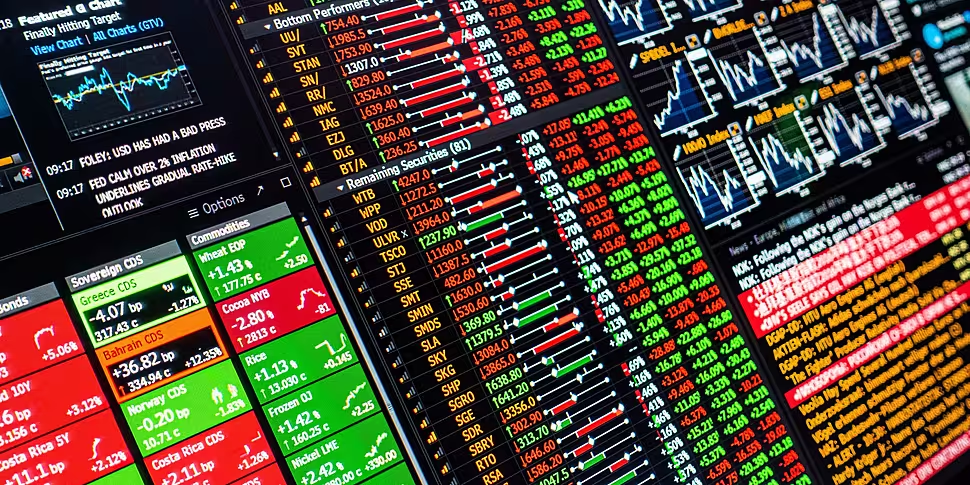Yesterday’s plunge in stock values around the world has sparked fears that the US economy could be facing recession.
Markets in Asia and Europe have opened positively this morning after yesterday saw billions wiped off the value of some of the world’s biggest companies.
Taiwan's stock exchange jumped following a record drop a day earlier but shed some of the gains later in the morning amid lingering concerns over the outlook for the US economy and tech companies.
The rally in the Asian markets came after a dramatic day on Wall Street on Monday.
All the major US stock market indexes fell at the opening bell and continued to drop up to the close.
The Nasdaq Composite - the index heavily made up of technology companies - finished down 3.4%, at its lowest level since early May.
Tech stocks
Similarly, the index of 30 major companies listed on US stock exchanges, the Dow Jones Industrial Average (DJIA), ended the day down 2.6%.
The drop was fuelled by falls in the value of the so-called ‘magnificent seven,’ which is made up of some of the world’s highest-performing tech companies:
- Apple
- Google parent company Alphabet
- Amazon
- Meta
- Microsoft
- Nvidia
- Tesla
The Dublin ISEQ opened up over 1% following a lunchtime slump yesterday.
London's FTSE 100 also opened in the green after it closed down more than 2% on Monday.
Other exchanges in Europe - including France's CAC 40, Germany's DAX and Spain's IBEX - also initially opened positive on Tuesday.
It comes after US jobs market data last week came in much lower than expected for July, sending the country's stock markets tumbling.
Market analyst Paul Sommerville told Newstalk Breakfast US economic data is making investors nervous.
"We're right in the middle of earnings season where these companies are out telling us how they're doing and they're not telling us particularly good news," he said.
"That is the backdrop of what happened yesterday".
Mr Sommerville said Japan's Nikkei "imploded" yesterday.
"It fell 12% in one day; that's the biggest fall since 1987," he said.
"The reason being is, it looks like the US economy is slowing and slowing dramatically.
"Investors around the world have basically been pricing extreme optimism, there's also extreme valuations.
"Complacency is totally across the board.
"There's a huge generation of investors that have just started investing since COVID and have no inclination about valuations - and the valuations are at nosebleed levels at the moment."
US jobs market
Mr Sommerville said data showing a slowdown in the US jobs markets is similar to figures seen 15 years ago.
"If you go back to 2008 the jobs numbers and GDP numbers were all showing signs [that] they were absolutely fine," he said.
"It was only in 2009 that they revised the numbers that they were able to tell you then that there was a recession - that is what's happening at the moment.
"So the US economy is slowly fairly dramatically and that means you've to re-price stocks".
Interest rates
The US central bank, the Federal Reserve, also decided not to cut interest rates from the 5.25% to 5.5% range which they have been held at since July last year.
Markets expect the US central bank to make a cut in September.
Mr Sommerville said the Federal Reserve was "very late in raising interest rates and now they're a little bit late in cutting interest rates".
He warned, however, that he is unsure if an interest rate cut will help as the US economy is "dramatically slowing".
Sell-offs were also not confined just to stock markets. Cryptocurrency Bitcoin fell to its lowest level since February on Monday.
Concerns globally have also been heightened by worries over the strength of China's economy and several weak earnings reports from major technology firms last week, as investors grow jittery over potential returns from investment in AI.
Listen back here:









